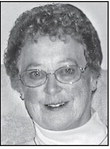New rule aims to prevent medical bill s
urprises Wisconsin Insurance Commissioner Nathan Houdek, Department of Agriculture, Trade, and Consumer Protection (DATCP) Secretary Randy Romanski, and Department of Health Services (DHS) Secretary-designee Karen Timberlake are celebrating the implementation of the federal No Surprises Act and encouraging consumers to learn about this new consumer protection measure.
“The No Surprises Act is a major step toward ending unexpected medical bills that may otherwise be financially devastating for Wisconsin families,” said Commissioner Houdek. “The Office of the Commissioner of Insurance stands ready to be the primary enforcer of this new law to ensure that consumers are protected from surprise medical bills.”
A surprise bill is an unexpected medical bill that a patient receives when they unintentionally obtain health care from a provider that is outside their plan’s provider network. Surprise bills often result from emergency situations, but sometimes services from an ancillary provider such as an anesthesiologist or radiologist can result in a surprise bill. A consumer’s cost for certain non-emergency services cannot be higher than if these services were provided by an in-network provider, and any coinsurance or deductible must be based on in-network provider rates.
“Wisconsinites should be able to focus on recovery after an emergency, not worry about paying a surprise bill,” said Secretary Romanski. “Consumers can rest easier knowing that DATCP, OCI, and DHS are working together to ensure that they have the information and resources they need regarding this new federal law.”
In addition, the No Surprises Act will ban certain other out-of-network charges and balance billing without advance notice.
“Health care providers, including physician’s offices, hospitals, and clinics are now required to provide consumers with a plain-language consumer notice explaining that their care may be charged on an out-of-network basis before they can bill the consumer,” said DHS Secretary- designee Karen Timberlake. “This is another important way to increase transparency and protect patients.”





